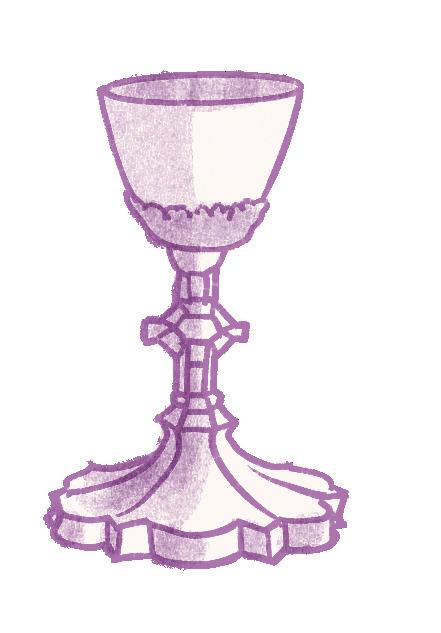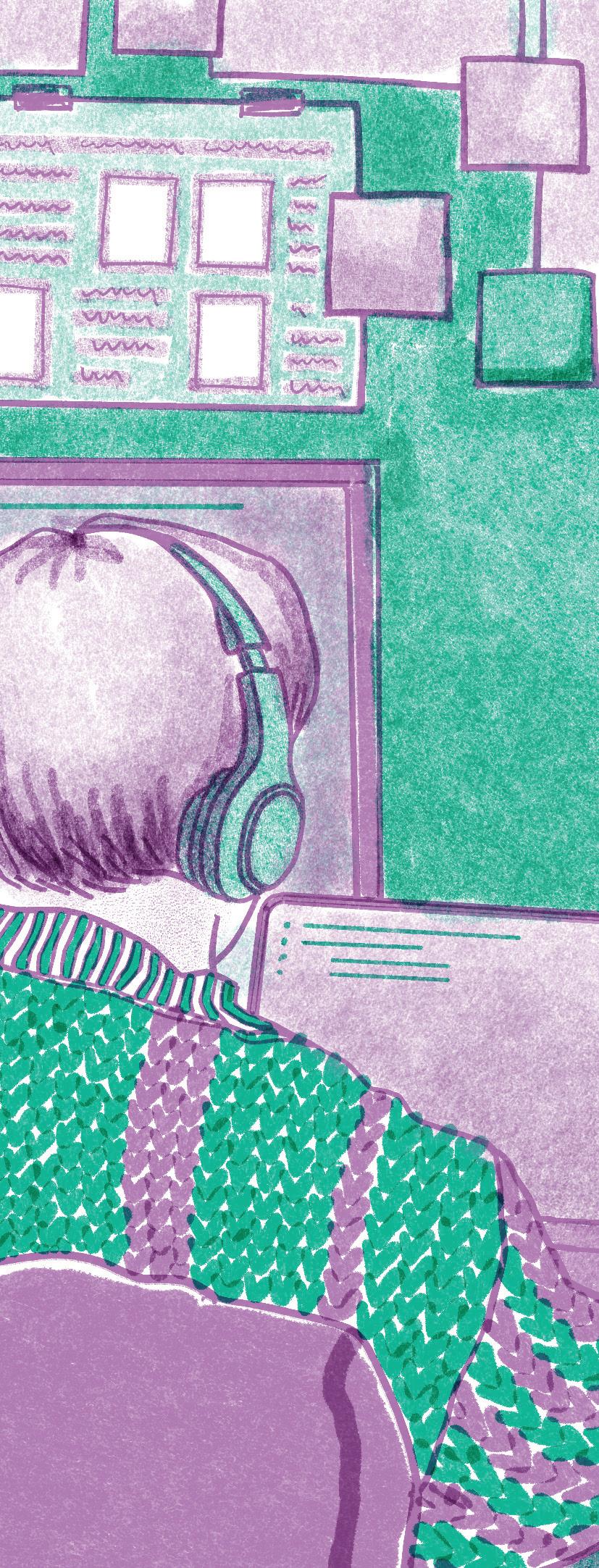

*Updated with inclusive language


‘It is not what someone does that determines whether their work is sacred or secular, it is why they do it.’
*

–A W Tozer



*Updated with inclusive language


‘It is not what someone does that determines whether their work is sacred or secular, it is why they do it.’
*

–A W Tozer
FMangos are, in my view, delicious evidence that God loves us.
Coffee is evidence that he wants us to stay awake.
And Genesis 2:19 is proof that work matters to God.
Out of nothing, God had created the earth, the sun, the moon, pterodactyls and whales, big hairy mammoths and tiny sea horses, not to mention innumerable galaxies stretch, stretch, stretching billions of light years into space.
With all of space and time and matter to delight in, God pops down to a garden in the Middle East and ushers the animals and birds along to a lone human being ‘to see what he would name them.’
Really? God, the creator and King of the universe is actually interested in what this single human being will choose to call that big-eared quadruped with a nose that doubles as an arm? Interested in this ordinary, little task that he, in his grace, has delegated to his rather inexperienced steward? You cannot be serious.
But there it is: Genesis 2:19, proof positive that God is interested in how that lone human being would use his powers of observation and language to differentiate this from that, and then this from that, and that and that and that...
And as with Ada m, so with us. God is interested in how each one of us uses the talents, resources, power, opportunities, and freedoms he’s given us to complete the tasks he’s given us to do.
And why wouldn’t he? He loves us.
And why wouldn’t he also care about the particular work we do?

From the moment we’re old enough to tidy up our toys until we can no longer make ourselves a cup of tea: toddler and schoolkid, student and apprentice, jobseeker and job creator, parent and grandparent, employee and retiree.
Biblically speaking, ‘work’ is not confined to the things we’re paid to do. After all, it’s work whether we’re making a bed at home or in a hotel. It’s work whether we’re on the check-out at Tesco or at the till in our local charity shop.
So, who needs a biblical understanding of God’s purposes for work?
Everyone. At every stage of life.


Suppose there’s a small plaque above the kitchen sink that reads, ‘Divine services conducted here three times daily’. Ruth and Billy Graham had a plaque like that. A child in that kitchen grows up knowing two things: When my parent(s) do the dishes, they do it for God
When I do the dishes, I could do it for God
How might that change that child’s attitude to their chores? How might it change their attitude to the people who do other people’s housework for a living? How might it change their attitude to work in general?
The vast majority of Christian teens choose their GCSEs, their A levels, their apprenticeships, and their uni courses without any biblical teaching on the purposes of work. The result is that they may well find themselves subconsciously or consciously leaning towards the kind of jobs that church culture tends to affirm – charity work, church-paid work, healthcare, or medicine – as opposed to construction, manufacturing, or commerce, for example. After all, church culture tends to make heroes of people working to alleviate suffering and poverty, but tends to ignore people working to prevent poverty happening in the first place by, for example, starting a business and creating well-paid jobs.
Many Christian workers labour, literally, under the false belief that they go to work solely to put bread on the table, money in the Sunday offering, and non-believers in the church. But when they realise their work actually matters to God, it’s liberating, exhilarating. The Jesus who promised to be with his disciples every day is with them at work, and in their work – in the disappointments and successes, in the grind and the whoosh. They expect God to be working in and through their work, transforming their character as well as drawing their colleagues to himself.
So they become more attentive to what God might be saying to them about the quality of the product or service they’re providing, the wellbeing of the team they’re leading, the best interests of the boss they’re serving, and the shalom of the organisation they’re part of. And so it changes how they read the Bible. It changes what they pray, and what they ask others to pray for them. It changes how they see God: a father who seeks to empower them for every aspect of their lives.
A robust theology of work might change how they view their retirement, how they continue to use their gifts and skills for the benefit of others. It would change how they support and pray for the people in their church still in paid work. It would change how they counsel and pray for their children and grandchildren in relation to their current and future employment.


And it might also change how they look back on their working life. One retired man came up to me at the end of a Bible conference talk on the value of work and said, ‘You just validated my whole life.’ I stood there, completely lost for words. I couldn’t imagine what I could have said to have had that impact. My bewilderment must have been obvious because he then said, ‘I used to work in insurance.’ And walked off. He’d spent his life doing a job that he’d thought was of no value in God’s kingdom.
Not least because it’s so important to people who don’t know Jesus. After all, if God isn’t interested in such a big part of their lives, what kind of God are we asking them to follow? A leisure-time God. A God for the weekend and the crisis but not a God of the everyday. But increasingly, people are looking for an integrated life, for a way of living that makes sense of their whole lives. They don’t want to be one person on Monday morning and another person on Friday night at the club and another person on Sunday morning. They want it all to count and it all to make sense.
But it won’t if t hey don’t know that their work matters to God, or why their particular work matters to God, or how it contributes to his mission to renew all things. Because, of course, in Christ it does.

If we want to understand how our work contributes to God’s purposes, the place to begin is ‘in the beginning’. The first thing the Bible tells us about God is that he’s a worker. We’re told five times in Genesis 1 that he ‘creates’ and five times that he ‘makes’.
And then, literally the ‘Garden of Delight’. It’s a place where there’s delicious, nutritious food to eat, fresh, running water to drink, beauty to behold, and purposeful work to be done – all in daily engagement with God.
What h creations can flourish. Then he commissions humans to be his representatives and extend that work to the whole world. We, through our work, are called to create places and spaces for flourishing – homes, workplaces, streets, parks, beaches, forests, farms, towns, cities, countries – that bring glory to God.
Yes, sin h
arduous: thorns and thistles, both literal and figurative, get in the way: the rains fail, the project fails, the component breaks, the colour runs, the people do what people do. Still, even after the Fall, God’s goals for work remain. The command to steward the earth is reiterated to Noah after the flood. It’s then confirmed in the fifth commandment and the wide range of Old Testament laws that create a land in which God’s people will live in peace and wellbeing, glorifying his name to the surrounding nations. Even after Israel’s centurieslong rebellion and their exile to Babylon, God commands them not only to work for their own benefit but to also ‘seek the peace and prosperity of the city to which I have carried you into exile. Pray to the Lord for it, because if it prospers, you too will prosper’ (Jeremiah 29:7).
We see t Christ is not only the one through whom and for whom all things were created but the one through whose ‘blood shed on the cross’ God will bring about peace – the reconciliation and renewal of ‘all things, whether things on heaven or on earth’ (Colossians 1:15-20).
In the meantime, we have the high privilege of co-labouring with him in his great cosmic regeneration project, day by day, task by task, dish by dish – in the power of his Spirit and for his glory. Our role is to seek to make the world as much like Christ would have it be until he returns to complete and perfect it: his kingdom come, his will be done, on earth as in heaven, in my town as in heaven, in my workplace as in heaven, at my kitchen sink as in heaven.



FTo spot how our work glorifies God, we can compare it to five characteristics we see in his work in Genesis. This is what God’s work looks like – how does yours do the same things?
How does your work bring order out of chaos?
Genesis 1:2 describes Planet Earth this way: ‘Now the earth was formless and empty’. And then God goes about bringing order to that chaos in a planned and methodical way – one thing preparing the way for another: the sea before the fish, the vegetation before the animals, and so on. Order created in an orderly way.
Lots of jobs bring order. Mothers and fathers bring order. So do gardeners, builders, town planners, engineers, traffic wardens, coders, the police, lawyers, politicians, and soldiers. Often, in our fallen world, our work brings order out of disorder or even devastation – the crumbling dockland site turned into a recreation centre, or a river cleaned up so that the otters can thrive. Similarly, doctors seek to heal our disorders and diseases and work out ways to prevent us getting sick in the first place.




FGod not only creates a secure place to live and sustenance for today, but the means to produce sustenance in the future.
A nursing mother provides food, and so does a farmer. And so does the lorry driver who transports it to the processing plant, the distribution centre, and then the shop. So does the forklift truck driver who moves the pallet and the sales assistant who stocks the shelf and the checkout attendant who rings up the purchases. Lots of jobs provide products and services that make people’s lives better. Architects and builders, textile manufacturers and clothing designers, aeronautics engineers and pilots. And, of course, lots of jobs generate money that enables us to provide for ourselves and others and give to others who need it.
How does your work provide for you and others?

FGod called his creation ‘very good’ and the Garden of Eden lived up to its name – ‘Delight’.
There’s joy in a simple meal well prepared, or in creating a game or song or picture or poem that brings joy to others. There’s joy in the right medication, a personal note at the end of an email, or even a sympathetic smile across the table during a difficult meeting. There’s joy in making things that make people’s lives easier: a form that’s easy to fill in, a call-centre system that doesn’t keep me listening to light jazz for hours on end; a limescale remover that actually removes limescale. There’s joy too in restoring a relationship, or helping someone into work, or just listening to a distressed friend for as long as it takes.
How does your work spark joy?


FGenesis 2:9 tells us that the trees in the garden were ‘pleasing to the eye’ before we learn that they were ‘good for food’. Genesis 3:6 informs us that the fruit was ‘pleasing to the eye’, too. Beauty matters to God. And you can see God’s concern for beauty all around us in creation.
You can create beauty in the way you arrange flowers, decorate a room, design a garden, or swirl a swan on top of a latte. You can create beauty even in something as simple as the way you lay out the biscuits on a plate for a guest. And of course beauty isn’t just visual. There’s beauty in a well-crafted sentence and an elegant equation. There’s work that creates beauty and there’s work that preserves beauty: emptying bins, sweeping streets, clearing up after accidents, cleaning beaches.
How does your work craft or preserve beauty?


FIn Genesis 1, God creates matter, and from it he releases every form of life. God also embeds potential in matter, in the created world, that we can discover and deploy.
An orchard keeper plants a seed and nurtures it into a sapling, a tree, and finally a bumper crop of Cox’s apples. A town planner builds a park, a library, and a community centre into their regeneration plans, creating the potential for play, intellectual exploration, and relationship. And so many people directly release the potential in others: parents, grandparents, teachers, coaches, physios, psychotherapists, managers, leaders. Likewise, we can release the potential in sand to create a sandcastle or cement or a crystal decanter or the silicone in the chips that run our phones and computers. Or we can turn a crop that thrives in poor soil into biofuel, releasing potential in the land and the plant and reducing our dependency on fossil fuels.
How does your work release potential?

God’s love led him to do his work in a way that brings order, makes provision, sparks joy, crafts beauty, and releases potential for the glory of his name and the blessing of all creation. And he calls us to work with him to meet those goals. In the pages that follow, three people reflect on what it means for their work –in the home, in a tech company, and in social housing.
Importantly, God’s intentions for the created order will be fulfilled in eternity. When Jesus returns, and the kingdom of God comes in all its fullness and all things are renewed, the book of Revelation gives us a picture of a garden city. It is perfectly ordered. There is no lack, joy and beauty abound, and God’s people will live out our glorious potential in complete fulfillment of all we were created to be. And that, as Isaiah 65 makes clear, will include working:
‘See, I will create new heavens and a new earth. The former things will not be remembered, nor will they come to mind. But be glad and rejoice for ever in what I will create, for I will create Jerusalem to be a delight and its people a joy...
‘They will build houses and dwell in them; they will plant vineyards and eat their fruit... ‘They will not labour in vain’
–Isaiah 65:17–18, 21, 23
For now, as we wait for that day, the Apostle Paul encourages us in Colossians 3:23–24;
‘Whatever you do, work at it with all your heart, as working for the Lord, not for people, since you know that you will receive an inheritance from the Lord as a reward. It is the Lord Christ you are serving.’


‘“I’m not the family slave. I am not the family slave.” I say that under my breath quite often, and sometimes out loud to my family. I’ve never enjoyed housework in itself. And it doesn’t help that unpaid work tends to go unvalued, and housework least valued of all. And that’s really dispiriting for men and women who are called to the home full-time. As a parent, the question I am asking is: “How do I best help my children to flourish?” And that involves doing a fair amount of housework.’
Sam is married with two children in their mid-teens. She spent 17 years working for Procter & Gamble as a brand manager with 42 brands under her watchful gaze – from Flash to Lenor, Pampers to Gillette. Then she felt God calling her out of that space and into something new. Before taking on a leadership role for a cross-city mission initiative, she spent a couple of years working in the home. And she still does the bulk of the housework. And what she does and doesn’t do, what she expects her children and husband to do, are all shaped by her primary goal.
‘My role at t his stage in my children’s lives is to create a safe space, a place where they can say what’s on their minds, a place where they won’t be judged. The world out there for teens is so flippin’ hard, they need one place where it’s okay.’
‘I remember the first time I realised that doing the housework is reflecting God’s work to bring order out of chaos. Exciting really. But I have to keep reminding myself of it. For me bringing order is one of the ways that I can contribute to God’s goal, and mine, of creating a sanctuary of flourishing – for my kids, my husband, me, our friends.


‘Order is important bec ause it releases potential. I tidy the kids’ books at the end of the day so that they can find them in the morning before running for the bus. Of course, you could say they should do it themselves. And there’s stuff they have to do, and leaving pizza boxes on the sofa is definitely not okay. But I’ve decided that making some things easier for them is the right thing. If the football kit is clean, ready to go and easy to find then they won’t be late for practice, and won’t be in a stew when they arrive, so they can give their best, learn a skill, have fun, make friends... Order makes that possible.
‘Of course, doing the housework provides for others in all kinds of ways – food, clean clothes, fresh sheets, space, time, ease.
‘I know some people actually enjoy some bits of housework. I really don’t, except when I’m ironing and I get to watch a movie at the same time – guilt-free. The joy for me is in knowing why I am doing it and seeing what it does for others.
‘I like things to look good but I’m not obsessive. I used to think that when guests came round everything had to be pristine and beautiful. Now I realise that if it’s all too perfect they’ll feel pressured to spring clean their house before inviting us back. The goal is hospitality. You need to be hygienic but if the dog’s toys aren’t back in the box well, that’s okay. I don’t want to become pharisaic about it: a home is made for people, not people for a home.
‘This is the heart of it for me, as I’ve said. God the Father, God the parent, makes a home for Adam and Eve in Eden so they can flourish. As a parent, I am trying to image God to my kids so they can flourish and become all he wants them to be. So I’ll clean the school uniform, but do not leave 17 dirty cups in your bedroom. I am not the

Charity Lead
‘Coding. I really love it. It’s a fascinating field. We’re solving problems that humans have never had to deal with before. And we’re learning so much and discovering new things all the time. And there’s so much more to learn.’ So says Jamie McKernan, a software engineer for Kaizen Reporting, and a recent participant in LICC’s Take the Lead course.
Kaizen helps banks and big financial institutions check the accuracy of the trillions of transactions they manage, ensuring they submit accurate reports and remain compliant with the ever-changing range of regulations across the globe. Jamie’s work is to write code that meets those changing needs in as elegant, effective and cost-efficient a way as possible.
Good code, ‘clean code’ as it’s known in the industry, not only does the thing it’s meant to do, but should be easy for another coder to read and understand, even if they haven’t been involved in the project. That’s vital because regulations change, the needs of clients change and, if the code is difficult to read or difficult to change, it can be hugely disruptive, time-consuming and therefore very expensive to fix.
So how does Jamie’s job align with God’s goals for good work?
‘At the higher level, we bring order to data so that errors are spotted and can be corrected. That way it can be presented in a clear fashion to government compliance authorities. And day by day, I seek to order code so that it not only does the job but does it in a way that minimises the use of cloud computing time and makes it easy to change. It’s a lot more time-consuming to do that but in the long run it saves time and money.
‘We’re not only providing our clients a bespoke service that they legally need and would find difficult to do themselves – we’re also providing the peace of mind that goes with knowing they’re compliant.


‘I see joy all the time in product managers who honestly get really excited when they ask questions about future needs and see that we’ve built in clarity and flexibility that will give them the agility they need. And for me personally, there’s the joy I get in teaching analysts to produce better code themselves, and to really understand not only the “how” of it but the “why” of it. There’s also the sheer pleasure of solving problems, of seeing new and better ways of doing things, of just learning my craft as I tend my “codegarden”. It is a like a garden, realising that if I put that next to this it’ll make both work better, or learning that a new application could really make something fly or prevent problems, just as a gardener might discover that starting out those seedlings in the greenhouse triples the number that survived.
‘As for beauty, good code is often, well – just beautiful. As one of the great early coders put it, “When you read clean code, you can see someone really cares about it.” And that’s part of it for me. As a believer, when I’m writing code I’m not just thinking about myself, about how quickly I can get it done – I’m thinking about how others will use it. I want to leave it clean and easy for the next coder, whoever that might be.
‘When it comes to releasing potential, there are so many ways we’re freeing our clients to get on with what they’re best at. I’m also releasing the potential in the technologies we have, in the brain God’s given me, and in the brains of my colleagues – solving problems and doing our bit to bring order to an economically vital and hugely complex part of our contemporary world. I love it.’

Jamie McKernan Senior Software Developer
‘I see it as a calling, not even as a job.’ Elizabeth Ddamulira has been working in social housing for over 25 years, and now leads a team of 80 in a local council. She grew up in a slum area in Uganda, which taught her that you can have poor housing but strong community, and the opposite. Flourishing requires both. For her, good housing is the bedrock on which education can be pursued, health optimised, and communities enabled to flourish. ‘Housing is about dignity and people’s empowerment. My purpose is to uplift the people we serve and to uplift my teams. Every day I put my job in front of God and ask the Holy Spirit to empower me. For me, love has to be the centre of everything. Love for the people we work for and love for my team. When something unhelpful happens, I am asking, ‘Oh God, why did that person do that? How would Jesus deal with that? It’s stewardship of that team.’
‘We certainly bring order into people lives, housing homeless people, keeping properties up to standard, moving others out of accommodation that’s unhealthy or too small for their family. But the way we do that well is to have clear order in our processes and resource allocation so that everyone knows what needs to be done by whom.. So I try to ensure all our policies are shaped by care, justice, and respect, and that service plans for individual clients are really clear. Of course, bringing order also means dealing with people on the team who might be making things harder. It’s having the difficult conversations.’
‘A big part of my work is enabling my teams to do excellent work for our clients. So I am always looking to see how I can help improve people’s performance: providing training, special support, a safety net, and trying to create a culture that combines excellence with humility and service. I want to make


sure that the teams have the right questions in their minds when they’re thinking about housing someone. Would you want to move in there? Is it warm, safe, at peace? Would you feel you could belong there?
‘There’s joy in the fruit of what I do: a family who’ve been living in bad conditions successfully rehoused. Or just recently there was one gentleman who never complained, but when one of the team visited him there was mould everywhere – not just in the bathroom and kitchen but the sofa, the bed... He hadn’t asked for anything but seeing how his face lit up when he had a new sofa, new bed, new cooking utensils... that was something. And then there are all the people we’ve helped out of debt. Often people don’t know the benefits that are open to them. And then to see the stress and anxiety and fear leave them, there’s joy.
‘I think our work does make things look better – refurbishing a property does that. So does working with architects to create homes that aren’t just functional but attractive. But I particularly like it when we take an old property that people would have written off and find a way to create a good home out of it.’
‘A good home releases all kinds of potential in people – in relationships, in being able to concentrate on schoolwork, in getting a decent night’s sleep so you’re set up to give your best the next day, and so on. And I am trying to release the potential in my teams. I remember inheriting a team in an organisation I’d just joined that was rated the worst in the organisation, and I decided before the Lord that I wasn’t going to fire anyone. And they turned into being the highest rated – it took a while and a lot of prayer but they got to give their best, individually and together. Praise God. That was pretty joyful too.’

Elizabeth Ddamulira Income Services Manager

Listen to the Thank God It’s Monday Podcast
Mark and Anna-Marie Greene interview working Christians from all walks of life on how their jobs glorify God – and what it looks like to follow Jesus at work.

Get a deeper dive into the theology of work – why it matters, how it makes a difference, and why your to-do list is a crucial part of your discipleship. Read the


A selection of small group video series unpacking why your work matters to God –and how you can join in his mission as you do it.







‘If we want to see our churches revitalised and society changed, we need to equip each other to live as followers of Jesus in all of life, wherever we are, every day of the week – not just on Sundays.’
Imagine if every Christian lived the way of Jesus in everything they did, everywhere they went.
It would transform the people and places around them. It would change their organisations, communities, and societies – as God works in and through them, right where they are.
But most Christ ians tell us they have neither the vision nor the tools for the task. Many end up feeling like God only cares about the ‘sacred’ things in life –church activities, Bible study, charity work – and that ‘secular’ things like jobs, hobbies, study, and time with friends don’t really matter.
That’s where LICC comes in. We’re working to catalyse a movement that empowers Christians to live as disciples of Jesus in daily life.
Founded by the pioneering writer, preacher, and church leader John Stott in 1982, we’re here to help people know God more deeply, and bring his wisdom, grace, and truth to the things they do – at work, at college, and at home; in the pub, the shops, and the gym; on social media, in the office, and out with friends.
We delve into the Bible, think hard about contemporary culture, and listen carefully to God’s people, exploring the challenges and opportunities they face. What we learn shapes what we do: resources, events, training, articles, books, films, stories, and more – all rooted in Scripture and designed to encourage discipleship in daily life.
We directly empower individuals to follow Jesus in daily life. We equip church leaders to grow a culture that does the same. And we work with theological educators to shape the next generation of whole-life disciplemakers.
Partnering with organisations and networks across the denominations, our vision is to see the world transformed for the glory of God through the impact of whole-life disciples of Jesus.
Whether you’re a Christian seeking to follow Jesus in all of life, a church leader nurturing others, or a theological educator training leaders, we’re here to help.
Discover how we can equip and inspire you at licc.org.uk

